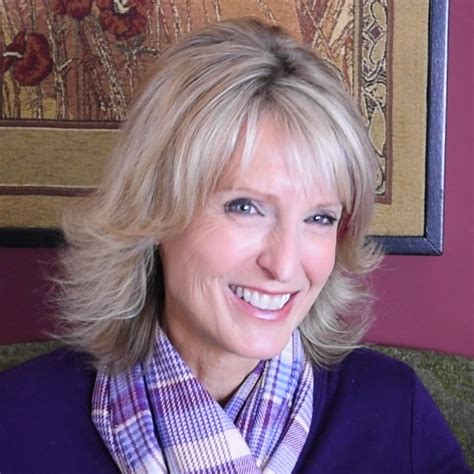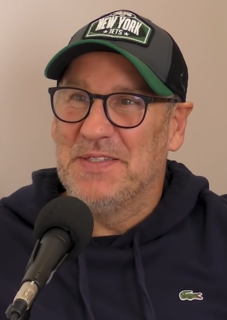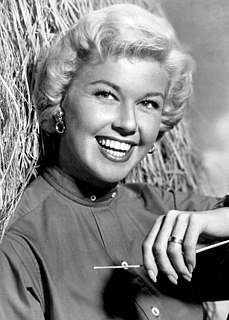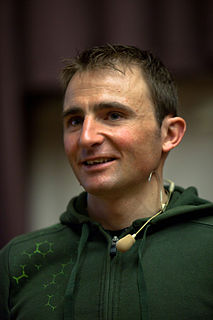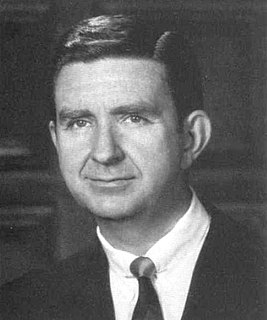A Quote by Haruki Murakami
But who can say what's best? That's why you need to grab whatever chance you have of happiness where you find it, and not worry about other people too much. My experience tells me that we get no more than two or three such chances in a life time, and if we let them go, we regret it for the rest of our lives.
Related Quotes
Don't worry about this world; it is not broken. And don't worry about others. You worry more about them than they do. There are people waging war; there are people on the battlefield who are more alive than they've ever been before. Don't try to protect people from life; just let them have their experience while you focus upon your own experience.
The basic thing is to be humble, and pretend you're a bartender in the tavern of life. Don't get too comfortable and don't really listen to anybody else. Don't stand around with a bunch of writers and talk about writing. You know when you see plumbers at a plumbers convention, usually they're not talking about plumbing: they're talking about whatever it is that two men happen to talk about. They're talking about sports, their wives and children. I just tell my students, don't talk about writing too much, just go out and do it. Find out whatever you need to get to the mainland.
If I'd find a dog, I'd try to find the owner, of course, but it was mine! I just can't live without them; I love them so much. I have cats, too. People call me all the time and say, 'We know of a couple of cats people don't care for,' and I say, 'Bring them!' That's it - two words. I'm always open for that.
I don't really get that nervous about whether people like it. You can't do anything about that. It's more technical. You spend two years of your life obsessing, picturing sound details, and you work so hard to make a movie a certain way, that you get there, and you're like - is it loud enough or whatever, so that this experience with everybody in this room is the fairest chance I can get. And then if you like it, cool, and if you don't, whatever.
In our concern for others, we worry less about ourselves. When we worry less about ourselves an experience of our own suffering is less intense. What does this tell us? Firstly, because our every action has a universal dimension, a potential impact on others' happiness, ethics are necessary as a means to ensure that we do not harm others. Secondly, it tells us that genuine happiness consists in those spiritual qualities of love, compassion, patience, tolerance and forgiveness and so on. For it is these which provide both for our happiness and others' happiness.
When you go to war as a boy you have a great illusion of immortality. Other people get killed; not you. . . . Then when you are badly wounded the first time you lose that illusion and you know it can happen to you. After being severely wounded two weeks before my nineteenth birthday I had a bad time until I figured out that nothing could happen to me that had not happened to all men before me. Whatever I had to do men had always done. If they had done it then I could do it too and the best thing was not to worry about it.
I think that any sort of hindsight, especially in this wrestling industry, is a waste of time, and time is extremely valuable. I don't control that. People ask me to do something, and it is our job, as entertainers, to do the best that we can to accomplish that goal. What I get upset about in this business is that so many people talk about the "what if," instead of the "what is." The "what is" is more important. If someone were to go back 15 years and say, "You should have done this," it's too late. I was told to do "X," and I was trying to do "X" the best way that I could.
I told him the truth, that I loved him and didn't regret anything about our lives together. But do we ever 'tell the truth, the whole truth, and nothing but the truth, so help me God' as my father used to say, to those we love? Or even to ourselves? Don't even the best and most fortunate of lives hint at other possibilities, at a different kind of sweetness and, yes, bitterness too? Isn't this why we can't help feeling cheated, even when we know we haven't been?
Material objectives consume too much of our attention. The struggle for what we need or for more than we need exhausts our time and energy. We pursue pleasure or entertainment, or become very involved in associations or civic matters. Of course, people need recreation, need to be achieving, need to contribute, but if these come at the cost of friendship with Christ, the price is much too high. The substitutions we fashion to take the place of God in our lives truly hold no water. To the measure we thus refuse the "living water," we miss the joy we could have.
I was always in and out of school. What I learned in high school is that female friendships are so much more important than worrying about having a boyfriend or looking good or things like that. I had such a good girlfriend growing up that we didn't need anything. We had such a creative world of our own imagination together. For me, if I have a child, I would say, "I hope you find a best friend that makes it so you don't really need much but each other." Learning about that type of friendship and trust is one of the best things I ever got out of school.



